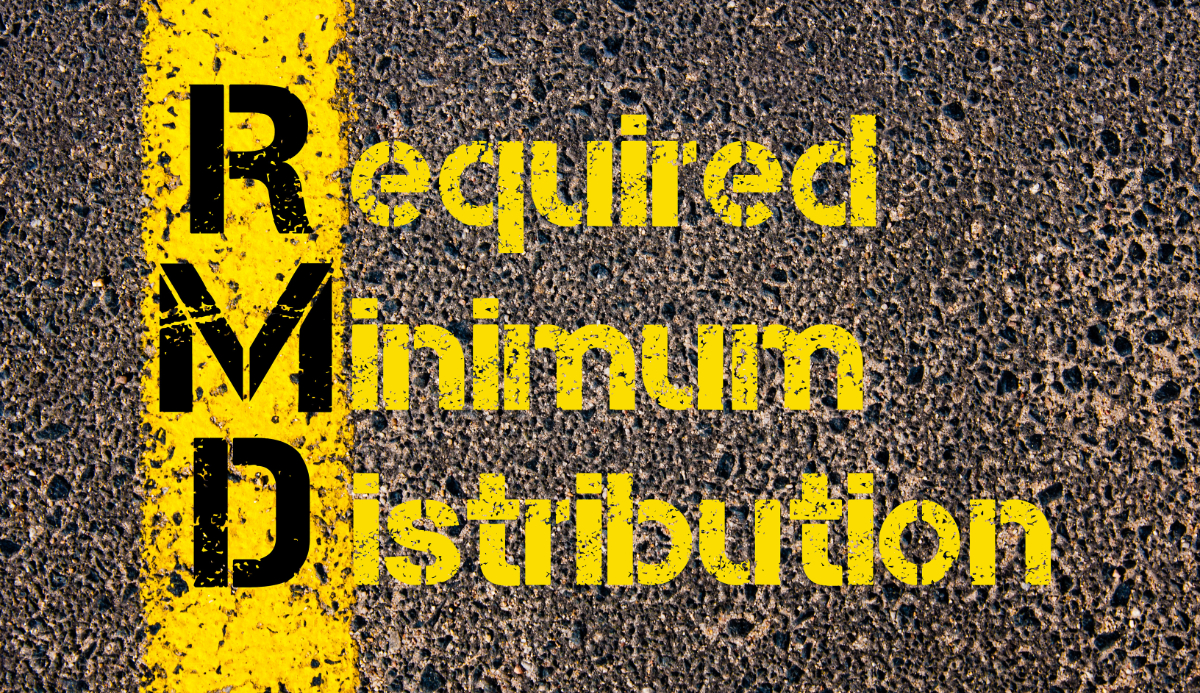

2020 RMDs Waived Under CARES Act
In March 2020, the Coronavirus Aid, Relief, and Economic Security (CARES) Act was passed. There are several components to the CARES Act that will impact many, if not all, Americans. This blog article focuses on how the CARES Act affects Required Minimum Distributions (RMDs). The CARES Act effectively waives RMDs from qualified retirement plans and IRAs for 2020, regardless of whether the taxpayer has been impacted by the Coronavirus pandemic.
The SECURE Act that passed in December 2019 changed the RMD beginning age from 70½ to 72, effective January 1, 2020. With the passage of the CARES Act, RMDs from qualified retirement plans and IRAs (including Inherited IRAs) are not required for 2020 allowing further income tax deferral, regardless of when you started, or when you were supposed to start, your RMDs.
The markets experienced a wave of volatility in the first quarter of 2020 and it is likely that your retirement plan may have decreased in value as a result. By taking a cash distribution to satisfy your RMD, it would mean potentially selling when asset levels are down, thus locking in a permanent loss. Since RMDs are not required this year, retirement accounts may have the opportunity to recover from the recent market volatility.
There are two key benefits to the waiver of RMDs for 2020: deferring income tax for another year and considering a Roth Conversion. For many individuals, the annual RMD is a significant portion of their taxable income. Without RMDs contributing to taxable income this year, financial planners have the opportunity to consider whether a Roth Conversion makes sense for a client. A Roth Conversion converts your tax-deferred investments to a Roth account so that the investments grow tax-deferred and distributions are tax-free. Taxpayers are responsible for income tax on the amount of the Roth Conversion, but the tax impact of a Roth Conversion may be smaller since taxable income is lower without the usual level of RMD income. At SFG, we will consider Roth Conversions on a client-by-client basis as a part of our tax planning process.
If you have already taken your RMD for 2020, then you may be able to reverse the transaction. You have until July 15, 2020 to put the funds back in your retirement account and it will be treated as a tax-free rollover (normally, tax-free rollovers must be completed within 60 days). RMDs taken from Inherited IRAs may not be reversed. Before trying to reverse a distribution you’ve already taken, you should consult your financial planner and tax advisor.
Even though RMDs are not required, you may still make Qualified Charitable Distributions (QCDs). QCDs are charitable donations made directly from IRAs. The IRA owner must be at least 70½ and QCDs are limited to $100,000. QCDs are not included in your income but is a way to reduce future tax liability by decreasing your retirement account balance.
Important Disclosure Information: The information contained within this blog is for informational purposes only and is not intended to provide specific advice or recommendations. Please remember that past performance may not be indicative of future results. Different types of investments involve varying degrees of risk, and there can be no assurance that the future performance of any specific investment, investment strategy, or product (including the investments and/or investment strategies recommended or undertaken by Schultz Financial Group Incorporated), or any non-investment related content, made reference to directly or indirectly in this blog will be profitable, equal any corresponding indicated historical performance level(s), be suitable for your portfolio or individual situation, or prove successful. Due to various factors, including changing market conditions and/or applicable laws, the content may no longer be reflective of current opinions or positions. Moreover, you should not assume that any discussion or information contained in this blog serves as the receipt of, or as a substitute for, personalized investment advice from Schultz Financial Group Incorporated. To the extent that a reader has any questions regarding the applicability of any specific issue discussed above to his/her individual situation, he/she is encouraged to consult with the professional advisor of his/her choosing. Schultz Financial Group Incorporated is neither a law firm nor a certified public accounting firm and no portion of the blog content should be construed as legal or accounting advice. A copy of the Schultz Financial Group Incorporated’s current written disclosure statement discussing our advisory services and fees is available for review upon request. Please Note: Schultz Financial Group Incorporated does not make any representations or warranties as to the accuracy, timeliness, suitability, completeness, or relevance of any information prepared by any unaffiliated third party, whether linked to Schultz Financial Group Incorporated’s web site or incorporated herein, and takes no responsibility therefore. All such information is provided solely for convenience purposes only and all users thereof should be guided accordingly.